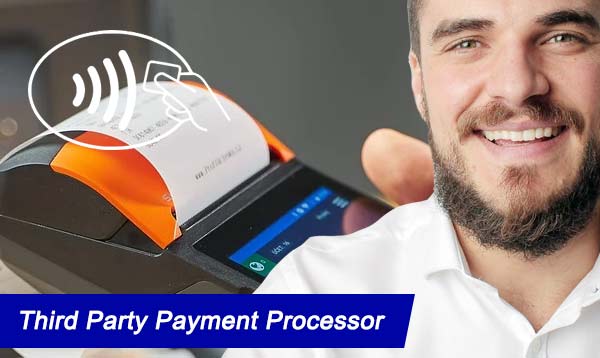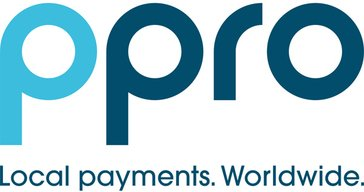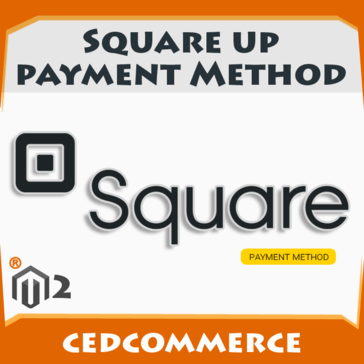Third Party Payment Processor
Third Party Payment Processor Table of Contents
- Third Party Payment Processo What Is A Third-Party Payment Processor?
- What Is A Third-Party Payment Processor?
- What Is A Third-Party Payment Processor?
- How Does Third-Party Payment Processor Work?
- What Are Some Examples Of A 3rd Party Payment Processor?
- Is Third-Party Payment Processing Necessary?
- Do I Need A Third-Party Payment Processor?
- What Are The Risks Of Using A Third Party Payment Processor?
- Overview of Third Party Payment Processor
- Best Payment gateway Solution by Rating
- Best Payment gateway Solution by Price
- Best Payment gateway Solution by Rated Features
- Check Your Payment gateway Solution Offers Round The Clock Support
- Make Sure Your Payment gateway Solution Offers The Features You Need
- Best Payment gateway Software Solution Verdict
- Payment gateway Software Frequently Asked Questions
- What is the best Payment gateway Solution?
- What is the cheapest Payment gateway Solution?
- Is there a free Payment gateway Solution?
- View all of the top Payment gateway Software Solutions
- Payment gateway Alternatives
- Payment gateway VS Side by Side Comparisons

Third Party Payment Processo
What Is A Third-Party Payment Processor?
What Is A Third-Party Payment Processor?
Third-party payment processor is a type of payment gateway that is used to complete the transaction between a merchant and a customer. Third-party payment processor usually works on the behalf of a merchant who is accepting credit cards online and is not able to process the card transactions himself due to various reasons. He needs the help of someone who has the knowledge and skills related to internet merchant account processing. In most of the cases, the merchants are the ones who are running the business online, and they need to keep track of all their transactions whether or not they are accepted by the merchant bank. They are also responsible for any charges that might be made by the bank.
Most of the time, when a customer makes a purchase online, they will provide an email address. This email address is needed to access the PayPal payment page and to check your merchant account balance. By using a third-party payment processor, your customers can send their email to the payment page and look for their purchases. If their order was placed through a third-party processor, then they will see the charge on their invoice. Since you have chosen to accept this charge, you can also process it through PayPal, without having to wait for your customer to email you back.
How Does Third-Party Payment Processor Work?
Third-party payment processor works as a part of the merchant's online merchant account and the customer doesn't even have to visit the website of the merchant for him to get his payment. Instead, he just has to enter his credit card details when buying something online, and then he will be automatically taken to the merchant's website where he will see his payment for that purchase. There won't be any delays in the payment because the payment will be immediately deducted from his bank account on the next working day. However, the merchant will still need to process the transaction for the customer before the amount is credited to his account. This is done through a series of steps starting with a request from the customer's credit card provider for details regarding the payment transaction.
Once the details have been received from the customer's credit card provider, the merchant's program will check if the details submitted by him are true and accurate. If there is still any difference, payment will be denied and then the whole process will be started all over again. The whole process is very convenient for both parties, since both parties are able to get what they want without having to negotiate too much. So if you are also having problems with your online business regarding the payment processing, you should consider using a third-party payment processor. You will be able to solve your problems easily and hassle free. So start searching for a reliable payment processor today.
What Are Some Examples Of A 3rd Party Payment Processor?
In order to get into ecommerce, you need to know what are some of the things that are included in a third-party payment processor. There are many different options out there for third-party payment processors and not all of them are right for your business. You will find that third-party programs charge you a monthly fee to process your credit cards, and this is one of the biggest things that you will want to consider before you decide on a particular program. While you will have to pay the monthly fees, you will also have a lower risk of having your accounts declined since they are taking a small percentage from each transaction that you process, which is almost never the case with the other programs that you can go with.
A third-party payment processor will charge a monthly fee to process your credit cards. You will still be responsible for the amounts that your customers pay, as well as any amount that you have agreed to pay the processor for. The fees that you pay for a third-party processing account can vary greatly so you will want to shop around and compare the different options that you have. One thing that you will want to watch for is how they are reporting to your merchant account. Some third-party processing services will report to their merchant account every time you make a successful transaction, and other services may only report to the merchant account once per month. If you have a large amount of sales that come in every day, you may find that you are paying too much for your service and you should consider switching to a more affordable monthly fee processor.
When it comes to processing credit cards, most people would think that they would need a 3rd party payment processor, but if they have an online store, they can actually process the transactions themselves. This will allow them to lower their overall processing costs and in the long run, it will allow them to run their business more efficiently. If you want to learn more about which type of merchant account is right for your company or your business, you can go online and read the valuable information on the subject that is provided by some of the most respected companies such as PayPal and WorldPay.
Is Third-Party Payment Processing Necessary?
When you are running an online business, you may wonder why you need to use third-party payment processing. Some of the people will say that this method of processing is not necessary at all. However, if you are running a small online business, third-party payment processor will help you in getting more clients and increase your sales. It allows your customers to purchase your products and services right away, which in return increases your sales.
Third-party payment processors can help your business grow faster by giving your business more opportunities to expand. This is one of the easiest ways to gain more clients, and it also helps you in building a strong relationship with your customers. When you have more clients, you have more business and income. Once you get a merchant account with a good processing company, you will be able to accept payments from various sources including credit cards, electronic check, cash and checks. This will make your business easier to conduct, and you can offer your customer a better service because you will be able to accept all kinds of payments.
You do not have to worry about the charges when you decide to get a merchant account with a third-party payment processing company. They will take care of everything and will even provide you with special offers and discounts. With the help of a good processor, you can increase your sales and even work on new products. You can also make your existing customers feel comfortable by offering them discounts for their shopping. Therefore, if you want to grow your business, you should consider having a merchant account with a third-party processor.
Do I Need A Third-Party Payment Processor?
If you are running an ecommerce site or simply making frequent online purchases, you have probably wondered if you need a third-party payment processor or not. To put it in simple terms, this type of payment processing offers you the ability to process credit and debit card transactions without incurring additional monthly fees. In most cases, these types of transactions are processed quite quickly which means that you will be able to increase your monthly sales. However, with the convenience that comes with accepting debit card payments comes a responsibility that goes beyond just accepting these types of payments. If you accept all major cards but do not have a merchant account, you will find that the added cost of accepting all cards can put a great strain on your budget.
The great thing is that there are some options available that allow you to save money on credit cards purchases while still allowing you to process these types of transactions. You should keep in mind that one of the most affordable third-party payment processing service programs is done through PayPal. PayPal is an excellent option for many people because it does not require you to open a separate bank account and you can receive your funds from your existing checking account. With PayPal, you only pay for transactions that have been authorized by your customer. Therefore, you will not have to worry about being charged excessive fees or being subjected to unnecessary fees for having an account.
Another option available that is affordable is a dedicated merchant account. If you do not have a merchant account, a third-party payment processor that performs these functions will be a more suitable option for you. Although, you may want to check on the reputation of a third-party processor before signing up with them because many companies that offer this service have a poor reputation. To make sure that you do not fall victim to a fraudulent company, it is advisable to compare and research a number of different companies so that you can find the most appropriate dedicated merchant account for your business.
What Are The Risks Of Using A Third Party Payment Processor?
When you use a third-party payment processor to process your customer's credit card transactions, you are taking a number of risks. First of all, because a bank is not directly involved with the process, it is much easier for a fraud to occur than it is for a business like Fattmerchant to have its transactions processed by a payment processor that they do not know or trust. Secondly, these payment processors work for a company, and therefore they can make all kinds of changes to your shopping cart software and other systems without informing you. Thirdly, if something goes wrong with the transactions because of a change in the third-party processing software or a fraudulent account, you could be left holding the bag on transaction fees and possible legal action.
In addition to these risks, many businesses have complained that using a third-party payment processor is slow and unreliable. In order for a business to process credit cards, it must have access to a high speed internet connection and a secure server. These requirements can only be met through the use of a company's own facilities. If you are shopping online, and you need your business to process credit cards quickly and securely, you may be better off going with a company that already has an established credit card processing and merchant services operation and that offers an extremely fast and reliable connection and secure server.
There are other benefits as well. If you choose to go with a merchant services provider who has a developed, secure server and is compatible with your website design, you may be able to move some of your customer data to your server in exchange for a small processing fee. You may also be able to offer additional services, such as a customer service line for common questions and problems. For example, if your website experiences a surge in traffic, your processing company may be able to help your customers deal with their concerns. When choosing a merchant account provider, you should consider all of the options. If you're comfortable with using a third-party payment processor and you are able to accept all major credit cards, it may be the best choice for your business.
Scroll down to read our indepth Payment Platforms guide. What you should know, Payment Platforms features, price plans and support. Pros and Cons of Payment Platforms as a payment gateway, everything is explained below.
Overview of Third Party Payment Processor
Spreedly is a software company that specialises in payment-gateway software for small to enterprise level businesses.
Spreedly is listed as the best payment-gateway software related to Payment Platforms. Spreedly was founded in 2008 in Durham, NC and currently has over 79 employees registered on Linkedin.
Best PAYMENT GATEWAY Solution By Rating
Get our stories delivered
From us to your inbox weekly.
 Spreedly
Spreedly
 Simpl
Simpl
 allpago
allpago
 EBizCharge
EBizCharge
 Bolt
Bolt
 PayLane
PayLane
 Paytm Business
Paytm Business
 Apple Pay
Apple Pay
 Paystack
Paystack
 SquareUp Payment Method
SquareUp Payment Method
 Ingenico ePayments
Ingenico ePayments
 PayMart
PayMart
 Paymill
Paymill
 Yapstone
Yapstone
 TRUSTLY
TRUSTLY
 Wirize
Wirize
 Zotapay
Zotapay
 Zooz
Zooz
 Zipmark
Zipmark
 XTRM
XTRM
